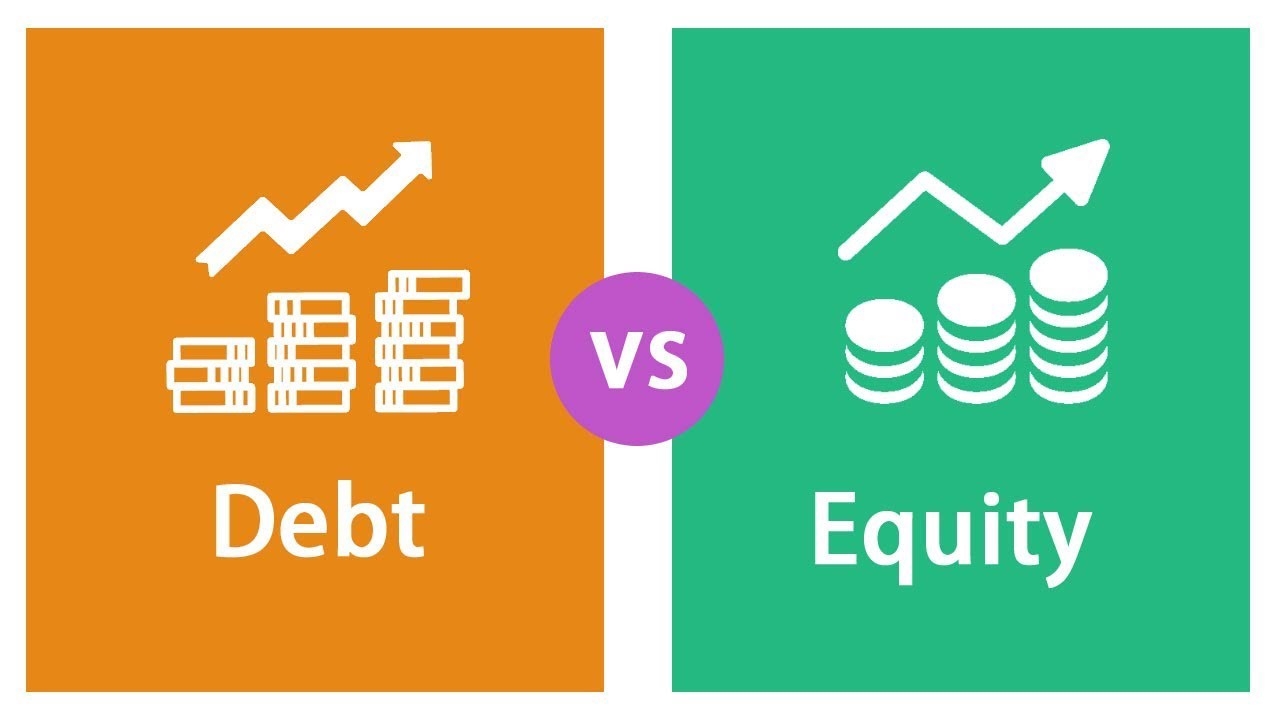Home>Finance>What Is The Difference In Perspective Between Finance And Accounting?


Finance
What Is The Difference In Perspective Between Finance And Accounting?
Modified: February 21, 2024
Discover the contrasting viewpoints between finance and accounting and gain insights into the key differences. Enhance your understanding of financial management and financial reporting with this informative article.
(Many of the links in this article redirect to a specific reviewed product. Your purchase of these products through affiliate links helps to generate commission for LiveWell, at no extra cost. Learn more)
Table of Contents
- Introduction
- Overview of Finance
- Overview of Accounting
- Nature of Finance
- Nature of Accounting
- Scope of Finance
- Scope of Accounting
- Objectives of Finance
- Objectives of Accounting
- Roles and Responsibilities in Finance
- Roles and Responsibilities in Accounting
- Key Differences Between Finance and Accounting
- Conclusion
Introduction
When it comes to the world of business and managing financial information, two key areas play vital roles: finance and accounting. While these terms are often used interchangeably, they represent distinct disciplines with unique perspectives. Understanding the difference between finance and accounting is essential for individuals pursuing a career in the finance industry and for those seeking financial insights for their businesses.
Finance and accounting are interconnected, as both fields deal with financial information and contribute to the overall financial health of an organization. However, the perspectives and approaches of these disciplines are distinct, focusing on different aspects of financial management.
Finance involves managing financial resources, making strategic investment decisions, and assessing the financial performance of an organization. It is concerned with how money is acquired and allocated to generate wealth and maximize profits. Finance professionals analyze markets, evaluate risk, and make informed decisions to optimize the use of funds.
Accounting, on the other hand, focuses on recording, classifying, and interpreting financial transactions. It involves the systematic recording of financial data, preparation of financial statements, and adhering to accounting standards. Accountants analyze financial data to provide accurate and relevant information to stakeholders, such as shareholders, creditors, and regulatory authorities.
While these definitions provide a high-level overview, it is important to delve deeper into the nature, scope, objectives, and roles of finance and accounting to understand their differences more comprehensively.
Overview of Finance
Finance is a broad discipline that encompasses the management of money, investments, and financial resources. It deals with various aspects, including financial planning, investment analysis, risk assessment, and financial decision-making. The primary goal of finance is to maximize the value of an organization by effectively managing its financial resources.
Finance professionals play a crucial role in organizations by identifying and evaluating investment opportunities. They assess the financial viability of projects, conduct market research, and determine the optimal allocation of funds. This involves analyzing financial statements, evaluating potential risks, and estimating future cash flows.
Moreover, finance professionals are responsible for managing the capital structure of an organization. This includes making decisions related to debt and equity financing, determining the cost of capital, and managing working capital to ensure the smooth operation of the business.
Key areas within finance include corporate finance, investments, and financial institutions. Corporate finance focuses on managing the financial resources of a company, analyzing investments, and making decisions that maximize shareholder value. Investments involve evaluating investment opportunities, analyzing risk and return, and constructing investment portfolios. Financial institutions encompass banking, insurance, and other financial services that facilitate the flow of funds in the economy.
With the advent of technology and globalization, finance has also become increasingly intertwined with areas such as financial markets, international finance, and financial planning. These areas require a deep understanding of market dynamics, economic forces, and regulatory frameworks to make informed financial decisions.
In summary, finance provides a strategic perspective on managing financial resources to achieve organizational goals. It involves assessing investment opportunities, managing financial risks, and optimizing the use of funds to enhance the value of a company.
Overview of Accounting
Accounting is the discipline that involves recording, classifying, and interpreting financial transactions of an organization. It provides a systematic and structured approach to financial reporting, enabling stakeholders to understand the financial position and performance of a company.
The primary objective of accounting is to provide accurate and reliable financial information that helps management, investors, creditors, and other stakeholders make informed decisions. Accountants are responsible for capturing and summarizing financial data, preparing financial statements, and ensuring compliance with accounting principles and regulations.
Accounting can be divided into several branches, including financial accounting, managerial accounting, and auditing. Financial accounting focuses on the external reporting of financial information to stakeholders such as investors and creditors. It involves preparing financial statements, including the balance sheet, income statement, and cash flow statement.
On the other hand, managerial accounting provides internal financial information to assist management in decision-making. It involves analyzing costs, budgeting, performance measurement, and providing insights to support strategic decision-making within the organization.
Auditing is another essential aspect of accounting, which involves assessing the accuracy and reliability of financial statements. Auditors ensure that financial information complies with accounting standards and provides an independent assessment of an organization’s financial health.
Accounting also encompasses other specialized areas such as tax accounting, forensic accounting, and cost accounting. Tax accounting involves complying with tax laws and regulations and preparing tax returns. Forensic accounting aims to detect and prevent fraud by investigating financial records and transactions. Cost accounting focuses on analyzing and allocating costs to help organizations manage expenses and improve profitability.
Accounting plays a vital role in ensuring transparency, accountability, and trust in financial reporting. By providing standardized and reliable financial information, accounting enables stakeholders to evaluate the financial health, performance, and viability of an organization.
In summary, accounting is the process of recording, classifying, and interpreting financial transactions to provide accurate and relevant financial information to stakeholders. It involves financial reporting, managerial decision support, and ensuring compliance with accounting standards and regulations.
Nature of Finance
Finance, as a field of study and practice, has its unique nature that distinguishes it from other disciplines. Understanding the nature of finance helps individuals comprehend its principles and core concepts.
One of the key aspects of finance is its forward-looking nature. Finance professionals are tasked with making predictions and forecasts about future financial outcomes based on historical data, market trends, and economic indicators. This forward-looking perspective allows them to analyze investment opportunities, evaluate risks, and make informed financial decisions.
Another important aspect of finance is its focus on the time value of money. Finance recognizes that money has a time dimension and that the value of money today is different from its value in the future. This concept is fundamental to various financial calculations, such as discounted cash flow analysis, which evaluates the present value of future cash flows.
Finance is also characterized by its emphasis on risk and return. Financial decisions involve assessing potential risks and evaluating the expected returns of investments. Finance professionals must consider factors such as market volatility, economic conditions, and industry dynamics to manage risk and optimize returns.
Additionally, finance is influenced by external factors such as regulatory frameworks, economic policies, and market conditions. Understanding these external influences is crucial for finance professionals to navigate the ever-changing landscape of financial markets and make informed decisions.
Finance is inherently interdisciplinary, drawing concepts and principles from economics, mathematics, statistics, and psychology. It incorporates economic principles to understand market trends and behavior, mathematical models for evaluating investment strategies, statistical tools for analyzing data, and psychological insights to understand investor behavior and market sentiment.
Furthermore, finance is dynamic and adaptable. It evolves in response to advancements in technology, changes in regulatory environments, and new financial instruments and products. Finance professionals must constantly update their knowledge and skills to stay current with industry trends and innovations.
In summary, the nature of finance is forward-looking, considering the time value of money, and focusing on risk and return. It is influenced by external factors, draws from various disciplines, and is subject to constant evolution and adaptation.
Nature of Accounting
Accounting is a discipline that encompasses the process of recording, classifying, and interpreting financial transactions. Understanding the nature of accounting is essential to grasp its purpose and principles.
At its core, accounting is concerned with providing an accurate and reliable representation of an organization’s financial position and performance. It follows a systematic and structured approach to ensure the integrity and consistency of financial information. The nature of accounting is rooted in principles such as relevance, reliability, comparability, and consistency.
One of the fundamental aspects of accounting is its retrospective nature. Accountants primarily deal with historical financial data, gathering information about past transactions and events. They record and summarize these transactions following generally accepted accounting principles (GAAP) to prepare financial statements.
Accounting is also focused on the accuracy and precision of financial information. Accountants strive to capture and report financial data with a high level of detail and fidelity to paint an accurate picture of an organization’s financial health. This ensures that stakeholders can rely on the information for decision-making purposes.
Moreover, accounting is objective and verifiable. The principles and standards that guide accounting practices are designed to minimize bias and subjectivity. It aims to provide an objective assessment of financial information that can be verified and audited by external parties.
Accounting is governed by a set of rules and regulations to ensure consistency and comparability across organizations and industries. These rules, such as the International Financial Reporting Standards (IFRS) and the Generally Accepted Accounting Principles (GAAP), provide a framework for accountants to prepare financial statements in a standardized manner.
Another aspect of the nature of accounting is its compliance-oriented approach. Accountants must adhere to legal and regulatory requirements when preparing financial reports. Compliance with accounting standards and regulations ensures transparency and enhances stakeholders’ trust in the accuracy and reliability of financial information.
Lastly, accounting is a dynamic discipline that evolves with changes in business practices, technological advancements, and regulatory updates. Accountants need to stay informed about updates in accounting standards, industry-specific regulations, and technological tools for financial reporting and analysis.
In summary, the nature of accounting lies in its retrospective, accurate, objective, and compliant approach. It follows accounting principles and frameworks to provide reliable financial information that can be compared across organizations and industries.
Scope of Finance
The scope of finance is vast and encompasses various dimensions that contribute to the management of financial resources and decision-making. Understanding the scope of finance helps individuals recognize its broad range of applications and areas of expertise.
One key area within the scope of finance is corporate finance. Corporate finance focuses on managing the financial resources of a company to maximize shareholder value. It involves assessing investment opportunities, determining the optimal capital structure, analyzing financial risks, and making strategic financial decisions.
Another significant aspect of finance is investment management. This involves analyzing financial markets, evaluating investment opportunities, and managing investment portfolios on behalf of individuals, institutions, or funds. Investment managers employ a range of financial tools and strategies to achieve financial goals while considering risk tolerance and return objectives.
Finance also encompasses the study and practice of financial markets and institutions. This includes understanding the intricacies of stock markets, bond markets, and other financial markets, as well as the functions of banks, insurance companies, and other financial intermediaries. The scope of finance in this area involves studying market dynamics, assessing risk, and analyzing the behavior of market participants.
Furthermore, financial planning is a crucial component of finance. Financial planning involves creating strategies to achieve specific financial goals, whether on an individual or organizational level. It includes budgeting, cash flow management, tax planning, retirement planning, and risk management. Financial planners use their expertise to guide individuals or companies in making sound financial decisions.
Finance also encompasses the study and understanding of financial instruments and derivatives. This includes bonds, stocks, options, futures, and other complex financial instruments. Understanding these instruments is vital for investors, traders, and financial professionals to intelligently manage investment portfolios, hedge risks, and speculate on market movements.
In addition to these areas, finance has a growing scope in emerging fields such as behavioral finance, sustainable finance, and fintech. Behavioral finance explores the influence of psychology and human behavior on financial decision-making. Sustainable finance focuses on aligning financial decisions with environmental, social, and governance considerations. Fintech, short for financial technology, refers to the use of technology and innovations to transform financial services and improve efficiency.
In summary, the scope of finance encompasses corporate finance, investment management, financial markets and institutions, financial planning, financial instruments, and derivatives. It is a continuously evolving field that adapts to new challenges and opportunities within the global financial landscape.
Scope of Accounting
The scope of accounting is vast and encompasses various aspects related to the recording, classification, and interpretation of financial transactions. Understanding the scope of accounting helps individuals comprehend its wide-ranging applications and the role it plays in the financial management of organizations.
Financial accounting is a significant area within the scope of accounting. It involves the preparation and presentation of financial statements, such as balance sheets, income statements, and cash flow statements. Financial accounting ensures the accurate and transparent reporting of an organization’s financial performance and position to stakeholders, such as investors, creditors, and regulatory authorities.
Managerial accounting is another critical aspect. Managerial accounting focuses on providing financial information to internal users, primarily management, to support decision-making and control operations. It involves budgeting, cost analysis, performance measurement, and variance analysis to assist managers in making informed business decisions.
Tax accounting is a specialized field within accounting that deals with the preparation and filing of tax returns. Tax accountants ensure that individuals and businesses comply with tax laws and regulations, maximize tax benefits, and minimize tax liabilities through proper planning and preparation.
Auditing is another important component of the accounting scope. Auditors assess the accuracy and reliability of financial statements, examining the internal controls, and providing an independent opinion on the fairness of financial reporting. Auditing ensures transparency and helps build trust among stakeholders regarding the integrity of an organization’s financial information.
Financial analysis is a broader area within the scope of accounting. It involves the interpretation and evaluation of financial data to assess the financial health and performance of an organization. Financial analysts analyze financial statements, conduct ratio analysis, interpret trends, and provide insights and recommendations to management and investors.
Cost accounting focuses on measuring and monitoring costs within an organization. Cost accountants analyze various costs, such as direct costs, indirect costs, and overhead costs, to determine the profitability of products, services, or departments. Cost accounting aids in cost control, pricing decisions, and performance evaluation.
International accounting is a specialized area that deals with the accounting standards and regulations applicable to multinational organizations. It addresses the complexities of financial reporting, foreign currency translations, and international taxation, ensuring compliance with international accounting standards and facilitating international business operations.
Furthermore, forensic accounting involves employing accounting principles and techniques to detect and prevent fraudulent activities. Forensic accountants investigate financial records, analyze transactions, and provide expert testimony in legal proceedings. They play a crucial role in uncovering financial irregularities and assisting in litigation and dispute resolution.
In summary, the scope of accounting includes financial accounting, managerial accounting, tax accounting, auditing, financial analysis, cost accounting, international accounting, and forensic accounting. It is a diverse discipline that provides valuable financial information, ensures compliance, supports decision-making, and contributes to the overall financial management of organizations.
Objectives of Finance
The objectives of finance revolve around the effective management of financial resources and the attainment of the overall goals of an organization. Understanding these objectives is crucial for finance professionals in guiding their decision-making processes and aligning financial strategies with organizational priorities.
One of the primary objectives of finance is to maximize shareholder wealth. Finance professionals strive to enhance the value of the organization by making investment decisions that generate higher returns for shareholders. This involves evaluating investment opportunities, assessing risk-return trade-offs, and allocating resources in a way that maximizes shareholder value.
Another objective of finance is to ensure the availability of funds. Finance professionals aim to secure an appropriate and sustainable mix of financing sources to support the organization’s operations, growth, and strategic initiatives. This includes managing working capital effectively and accessing external funding through methods such as debt financing or equity financing.
Risk management is a significant objective of finance. Finance professionals analyze and mitigate financial risks that may threaten the organization’s financial stability and profitability. This involves identifying potential risks, such as market volatility, credit risk, or liquidity risk, and implementing strategies to minimize their impact on the organization.
Financial efficiency is another objective of finance. Finance professionals aim to optimize the use of financial resources to achieve the highest level of efficiency and productivity. This includes managing costs, improving operational efficiency, and allocating resources in a way that maximizes overall financial performance.
Additionally, finance objectives encompass long-term financial planning. Finance professionals engage in strategic financial planning to chart the organization’s financial course and ensure its long-term viability. This involves forecasting financial needs, conducting scenario analysis, and developing financial strategies that support the organization’s growth and sustainability.
Furthermore, ethical and responsible financial management is an increasingly important objective in the field of finance. Finance professionals are expected to uphold ethical standards, adhere to regulatory requirements, and consider the broader societal and environmental impacts of their financial decisions.
Ultimately, the overarching objective of finance is to contribute to the overall success and prosperity of the organization. This involves aligning financial strategies with the organization’s mission and goals, guiding decision-making processes that drive sustainable growth and profitability, and maintaining the financial health and integrity of the organization.
In summary, the objectives of finance include maximizing shareholder wealth, ensuring the availability of funds, managing financial risks, improving financial efficiency, engaging in long-term financial planning, and practicing ethical and responsible financial management. These objectives collectively drive the financial decision-making processes and contribute to the overall success of the organization.
Objectives of Accounting
The objectives of accounting revolve around the systematic recording, reporting, and interpretation of financial information to provide accurate and reliable insights into an organization’s financial position and performance. Understanding these objectives is essential for accountants in fulfilling their roles and responsibilities and meeting the needs of stakeholders.
One of the primary objectives of accounting is to provide financial information that is relevant and useful for decision-making. Accountants aim to capture and summarize financial transactions in a structured and standardized manner. By doing so, they enable management, investors, creditors, and other stakeholders to make informed decisions based on reliable financial data.
Accounting also aims to ensure the accuracy and reliability of financial information. Accountants follow generally accepted accounting principles (GAAP) or international financial reporting standards (IFRS) to maintain consistency in recording and reporting financial transactions. This objective helps to enhance the credibility of financial statements and build trust among stakeholders.
Another objective of accounting is to facilitate compliance with legal and regulatory requirements. Accountants ensure that financial statements adhere to relevant accounting standards and regulations. Compliance with these standards ensures transparency, enables fair representation of an organization’s financial position, and protects the interests of stakeholders.
Accounting plays a crucial role in assessing the financial performance and stability of an organization. Accountants interpret financial information to provide insights into profitability, solvency, liquidity, and efficiency ratios. By analyzing financial data, accountants enable stakeholders to evaluate the financial health and operational efficiency of the organization.
Additionally, accounting aims to provide accountability and transparency by ensuring accurate and timely financial reporting. Accountants prepare financial statements, including the income statement, balance sheet, and cash flow statement, to communicate the financial results and position of the organization to stakeholders. This objective helps stakeholders to assess the organization’s performance, make investment decisions, and evaluate its ability to meet financial obligations.
Furthermore, accounting serves the objective of facilitating effective management control. Through cost accounting, budgeting, and variance analysis, accountants help management monitor and control costs, assess performance, and make sound financial decisions. This objective aids in optimizing resource allocation, improving operational efficiency, and achieving organizational goals.
Lastly, ethical and professional conduct is an essential objective of accounting. Accountants are expected to uphold ethical standards, maintain confidentiality, and act with integrity when handling financial information. This objective ensures the trustworthiness and credibility of accountants and contributes to the reliability of financial statements.
In summary, the objectives of accounting include providing relevant and useful financial information, ensuring accuracy and reliability, facilitating compliance, assessing financial performance, providing accountability and transparency, supporting effective management control, and upholding ethical and professional standards. These objectives collectively ensure the integrity of financial reporting and meet the information needs of stakeholders.
Roles and Responsibilities in Finance
In the field of finance, individuals assume various roles and responsibilities that are vital to the effective management of financial resources and the achievement of organizational goals. Understanding these roles and responsibilities helps individuals navigate their professional paths and contribute to the financial success of their organizations.
One of the key roles in finance is that of a financial analyst. Financial analysts assess financial data, conduct market research, and provide insights and recommendations to support investment decisions. They analyze financial statements, evaluate industry trends, and identify investment opportunities. Financial analysts are responsible for conducting risk assessments and financial modeling that assists in forecasting and strategic decision-making.
Financial managers, also known as finance managers or controllers, play a crucial role in overseeing the financial operations of an organization. They are responsible for financial planning, budgeting, and forecasting. Financial managers monitor financial performance, manage cash flow, and allocate resources effectively. They also ensure compliance with financial regulations and evaluate financial risks.
Another important role in finance is that of a treasurer. Treasurers are responsible for managing an organization’s financial assets, including cash flow management, investments, and risk management. They develop strategies for liquidity management, manage banking relationships, and make decisions regarding debt and equity financing. Treasurers play a key role in optimizing the organization’s capital structure and ensuring efficient use of financial resources.
Finance professionals also serve in roles related to financial analysis and planning. They analyze financial statements, conduct financial modeling, and prepare forecasts and budgets. They provide insights and recommendations to support strategic decision-making, identifying areas for cost optimization, revenue enhancement, and risk mitigation.
Risk managers are responsible for identifying, analyzing, and mitigating risks that may impact an organization’s financial health. They develop risk management strategies, conduct risk assessments, and implement risk mitigation measures. Risk managers also monitor regulatory compliance and stay updated on industry best practices.
Finance professionals in the field of investments manage and analyze investment portfolios on behalf of individual or institutional investors. They perform research, assess risk-return profiles, and make investment recommendations. They monitor portfolio performance, rebalance asset allocations, and stay informed about market trends and emerging investment opportunities.
Lastly, professionals in corporate finance play a role in strategic financial decision-making within an organization. They assess investment opportunities, determine optimal capital structures, and evaluate merger and acquisition prospects. They also manage working capital, assess the financial viability of projects, and develop financial strategies aligned with the organization’s goals.
In summary, roles in finance include financial analysts, financial managers, treasurers, professionals in financial analysis and planning, risk managers, investment managers, and corporate finance professionals. Each role carries specific responsibilities that contribute to effective financial management, strategic decision-making, and the overall financial health of an organization.
Roles and Responsibilities in Accounting
The field of accounting encompasses various roles and responsibilities that are essential for the accurate recording, reporting, and interpretation of financial information. Understanding these roles helps individuals navigate their accounting careers and contribute to the financial management of organizations.
One of the primary roles in accounting is that of an accountant or a bookkeeper. Accountants are responsible for recording and classifying financial transactions, ensuring the accuracy and completeness of financial data. They maintain general ledgers, prepare journal entries, and reconcile accounts. Accountants play a crucial role in maintaining the integrity of financial records and providing the foundation for financial reporting.
Financial reporting is another essential responsibility in accounting. Reporting accountants prepare financial statements, including the balance sheet, income statement, and cash flow statement. They ensure compliance with accounting principles and disclosure requirements. Reporting accountants provide timely and accurate financial information to stakeholders, allowing them to make informed decisions regarding investments, financing, and other business activities.
Auditors are responsible for evaluating the accuracy and reliability of financial statements. External auditors, in particular, conduct independent assessments of an organization’s financial records and systems. They verify the compliance of financial statements with accounting standards and regulatory requirements. Auditors play a crucial role in promoting transparency and maintaining stakeholders’ confidence in a company’s financial reporting.
Management accountants perform financial analysis and provide insights to aid in internal decision-making. They analyze costs, revenue, and performance measures to assist management in budgeting, planning, and strategic decision-making. Management accountants help identify areas for cost reduction, efficiency improvement, and revenue enhancement within an organization.
Tax accountants specialize in tax compliance and planning. They ensure that organizations comply with tax laws and regulations, prepare tax returns, and advise on tax strategies. Tax accountants keep up to date with changes in tax laws and help organizations minimize tax liabilities while maintaining compliance.
Forensic accountants investigate financial irregularities and potential fraud. They analyze financial data, identify financial misconduct, and provide evidence for legal proceedings. Forensic accountants play a vital role in detecting financial fraud, embezzlement, and other fraudulent activities within organizations.
Financial controllers oversee the overall accounting function within an organization. They manage the day-to-day accounting operations, supervise the accounting staff, and ensure the accuracy of financial records. Financial controllers play a critical role in financial reporting, internal controls, and adherence to accounting policies and procedures.
Lastly, financial analysts in accounting perform financial research and analysis to assist in decision-making. They analyze financial data, conduct financial modeling, and interpret trends. Financial analysts provide insights and recommendations to support strategic planning, investment decisions, and risk assessment.
In summary, roles in accounting include accountants, financial reporters, auditors, management accountants, tax accountants, forensic accountants, financial controllers, and financial analysts. Each role carries specific responsibilities that contribute to the accurate recording and reporting of financial information and support decision-making within organizations.
Key Differences Between Finance and Accounting
Finance and accounting are distinct disciplines that serve different purposes within an organization. While they are interconnected and collaborate closely, there are key differences that set them apart in terms of focus, objectives, and scope.
One of the main differences lies in their perspectives. Finance focuses on managing financial resources, making strategic investment decisions, and assessing the financial performance of an organization. It looks at the big picture, analyzing how money is acquired and allocated to generate wealth and maximize profits. On the other hand, accounting focuses on recording, classifying, and interpreting financial transactions. It is more detailed and retrospective, providing an accurate and reliable picture of an organization’s financial position and performance.
The nature of the two disciplines also differs. Finance is forward-looking, involving predicting and forecasting future financial outcomes based on historical data, market trends, and economic indicators. It requires making strategic decisions to optimize the use of funds and maximize the value of the organization. Accounting, on the other hand, is more retrospective, concerned with capturing and summarizing past financial transactions. It ensures accurate financial reporting and provides a historical record that supports decision-making and accountability.
The scope of finance is broader and encompasses various dimensions of financial management, including corporate finance, investment management, financial markets, and financial planning. Finance professionals handle strategic financial decision-making, risk assessment, and financial analysis. Accounting, on the other hand, has a narrower scope, focusing on the systematic recording, classification, and interpretation of financial transactions. Accountants are responsible for preparing financial statements, ensuring compliance, and providing financial information to stakeholders.
Another difference lies in the objectives of each discipline. The primary objective of finance is to maximize shareholder wealth through effective financial management, strategic investments, and risk assessment. Finance aims to optimize the organization’s financial resources, enhance profitability, and achieve long-term financial goals. Accounting, on the other hand, has objectives such as providing relevant and reliable financial information, ensuring accuracy and transparency in financial reporting, and facilitating compliance with accounting standards and regulations.
Roles and responsibilities in finance and accounting also differ. In finance, professionals undertake roles such as financial analysts, financial managers, treasurers, and investment managers. They focus on financial planning, investment analysis, risk management, and managing financial resources. In accounting, roles include accountants, financial reporters, auditors, management accountants, and tax accountants. Accountants focus on recording, reporting, and interpreting financial transactions, ensuring accuracy, compliance, and transparency.
In summary, while finance and accounting are interconnected, they differ in their perspectives, nature, scope, objectives, and roles. Finance focuses on managing financial resources, making strategic decisions, and optimizing the use of funds to maximize shareholder wealth. Accounting focuses on recording, classifying, and interpreting financial transactions, ensuring accurate financial reporting, and facilitating compliance. Together, these disciplines contribute to the overall financial management and success of organizations.
Conclusion
Finance and accounting are two distinct disciplines that are essential for the effective management of financial resources and decision-making within organizations. While they are closely related, they have different perspectives, objectives, and roles that distinguish them from each other.
Finance focuses on managing financial resources, making strategic investment decisions, and assessing the financial performance of an organization. It has a forward-looking nature, involving forecasting future financial outcomes and optimizing the use of funds to maximize shareholder wealth. Finance professionals play roles such as financial analysts, financial managers, and investment managers, contributing to financial planning, risk assessment, and financial analysis.
Accounting, on the other hand, involves recording, classifying, and interpreting financial transactions. It has a more retrospective nature, providing a systematic and accurate representation of an organization’s financial position and performance. The primary objective of accounting is to provide relevant and reliable financial information, ensure compliance with accounting standards, and facilitate decision-making and accountability. Accountants play roles such as financial reporters, auditors, and management accountants, focusing on financial reporting, compliance, and internal decision support.
Despite their differences, finance and accounting are interconnected and collaborate closely to support the overall financial management and success of organizations. Finance relies on accurate and reliable financial information provided by accounting to make informed decisions and assess performance. Accounting benefits from the financial strategies and insights provided by finance to ensure the financial health and sustainability of the organization.
Understanding the differences and synergies between finance and accounting is crucial for individuals pursuing careers in these fields and for organizations seeking effective financial management. By recognizing the unique perspectives, objectives, and roles of finance and accounting, individuals can leverage their expertise to contribute to the overall success of their organizations.
In conclusion, finance and accounting are complementary disciplines that work together to drive financial management, decision-making, and accountability. Their differences in perspective, objectives, and roles provide a holistic approach to managing financial resources and ensuring the accuracy and transparency of financial information. The collaboration between finance and accounting strengthens organizations’ ability to navigate the complexities of the financial world and achieve their financial goals.














